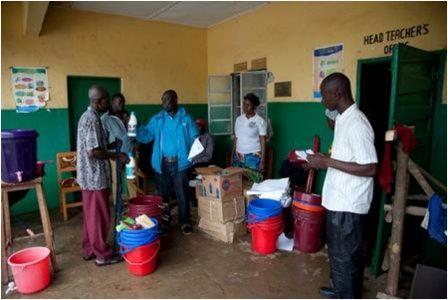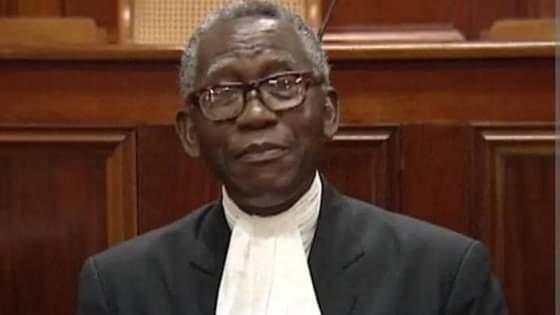Children go back to school in Sierra Leone but hygiene safety measures remain in place
Freetown, 31 August 2015 – After the summer break, children in Sierra Leone return to school today as the country continues to push to be declared free from Ebola transmission.
This time last year, schools stayed shut for the country’s 1.8 million school children because of the Ebola health emergency, only reopening in April.
Although cases of Ebola are on the decline, complacency must be avoided, especially given the new cases seen by neighbouring Liberia during and after its own countdown to zero. Specific measures to keep Ebola out of schools were introduced with the resumption of schools in April and will continue.
“We are glad that no single case was reported in schools during the last school term, but we must ensure that schools remain safe. Schools must continue to enforce hand washing and temperature screening measures,” said Dr Christiana Thorpe, National School Reopening Coordinator. “Until we are at resilient zero, we cannot afford to be complacent.”
UNICEF, working together with the Ministry of Education, Science and Technology (MEST), has been monitoring all schools to check if hygiene supplies for handwashing and thermometers delivered in March and April are still in place and functional. For all schools with inadequate or no supplies, replenishment items are being distributed by the District Education Offices (DEOs). UNICEF has procured 18,000 30-litre buckets, 18,000 20-litre buckets, 9,000 jerry cans, 50,000 bars of soap and other cleaning materials (brushes, brooms, gloves, chlorine) for replenishment. A school-based refresher training on the safety protocols is also planned for all schools in the country.
In addition, UNICEF took advantage of the summer recess to train 10,000 teachers in psychosocial support so that the teachers have the skills to address the psychosocial needs of children impacted by Ebola. An accelerated curriculum has been developed to effectively address the learning needs of children within the abridged school calendar. 18,000 teachers have also been trained on the curriculum, with the support of NGOs.
Back to school messages and jingles continue to be aired on radios, including community radios, to get all children back into school including those that were not in school prior to Ebola. UNICEF and its partners are also working in all chiefdoms to identify vulnerable children, including Ebola orphans and survivors, to get them back into school.
“We cannot leave any child behind. All effort must be made to get every child in school,” said Geoff Wiffin, UNICEF Country Representative. “A programme to provide alternative education to pregnant girls is also in the offing so that indeed no child is left behind.”
During recent quarantine periods, UNICEF supported children with learning materials, and radios were distributed to households to ensure children did not miss out on their learning. This was in addition to the distribution of learning materials to all 1.8 million school-going children in April and May.
The Ebola emergency had emphasized the need to make the education system more resilient. It is important to maintain the safe hygiene practices that have been inculcated in schools and major investments are required to improve water and sanitation infrastructure. UNICEF is supporting the MEST to rebuild better and stronger. Good hygiene practices are a major step to improving learning outcomes, but there is also the need for good, qualified and motivated teachers, improved classroom conditions, and a relevant curriculum with adequate learning materials among other factors.
This work has been enabled through support from DFID, EU, JICA, OFDA, Irish Aid, Ikea Foundation, GPE/World Bank, United Arab Emirates (UAE), and various National Commissions including United Kingdom, Norway, Italy, Germany, Sweden, Canada, Netherlands and Czechoslovakia.
UNICEF
Stay with Sierra Express Media, for your trusted place in news!
© 2015, https:. All rights reserved.






